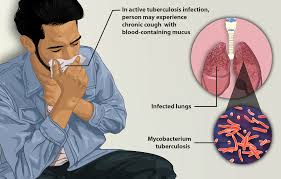Avoiding tuberculosis (TB) involves adopting preventive measures to reduce the risk of exposure to the bacteria that cause the disease (Mycobacterium tuberculosis). Here are some effective strategies to avoid TB:
- Vaccination: Bacille Calmette-Guérin (BCG) vaccine is widely used to prevent severe forms of TB in areas where the disease is prevalent. While it may not fully prevent TB infection, it can reduce the risk of developing severe forms of the disease, such as TB meningitis and disseminated TB in children.
- Avoid Close Contact with Infected Individuals: TB is primarily spread through the air when an infected person coughs, sneezes, or talks. Minimize close contact with individuals known to have active TB until they have been treated and are no longer infectious.
- Good Ventilation: TB bacteria thrive in enclosed spaces with poor ventilation. Ensure adequate ventilation in living and working spaces by opening windows and doors to allow fresh air to circulate.
- Personal Hygiene: Practicing good hygiene habits, such as covering your mouth and nose when coughing or sneezing and promptly disposing of used tissues, can help prevent the spread of TB bacteria.
- Healthy Lifestyle: Maintaining a strong immune system through a balanced diet, regular exercise, adequate sleep, and managing stress can help reduce the risk of TB infection and its progression to active disease.
- Screening and Testing: Individuals at high risk of TB infection, such as healthcare workers, those living in crowded or congregate settings, and individuals with HIV/AIDS or other immunocompromising conditions, should undergo regular TB screening and testing. Early detection allows for prompt treatment and reduces the risk of transmission to others.
- Treatment of Latent TB Infection: If you have been exposed to TB but do not have active disease, your doctor may recommend treatment for latent TB infection (LTBI) to prevent the development of active TB in the future. Treatment typically involves taking antibiotics for several months under medical supervision.
- Education and Awareness: Educate yourself and others about TB transmission, symptoms, and preventive measures. Raise awareness in your community about the importance of TB prevention and treatment to reduce stigma and encourage early diagnosis and treatment.
By implementing these preventive measures, individuals can significantly reduce their risk of contracting TB and contribute to global efforts to control and eliminate this infectious disease.





Comments